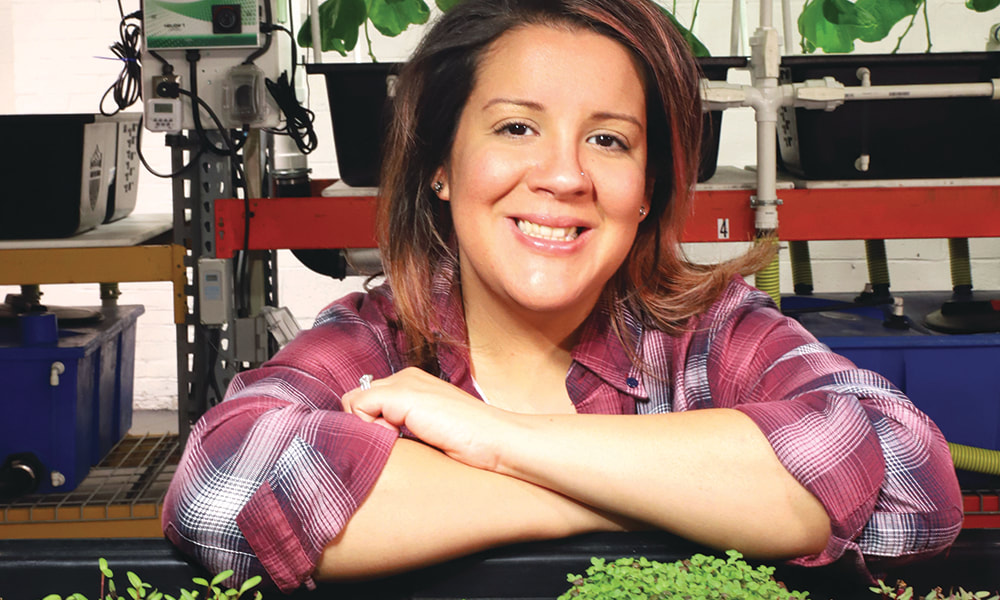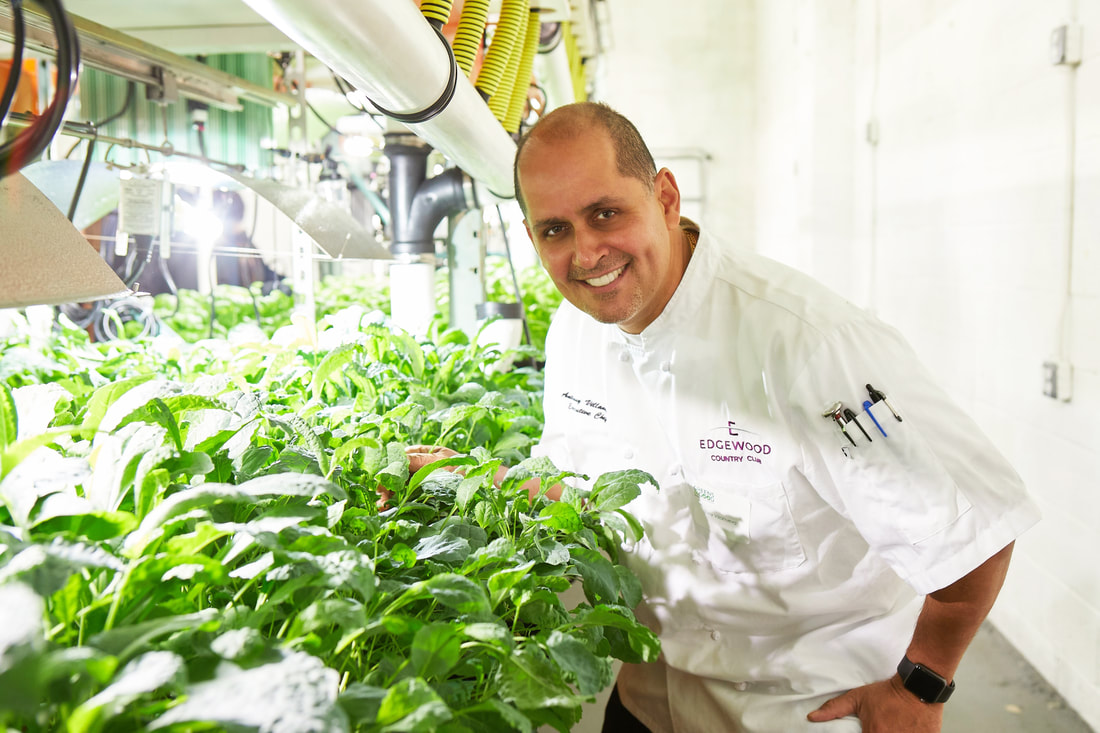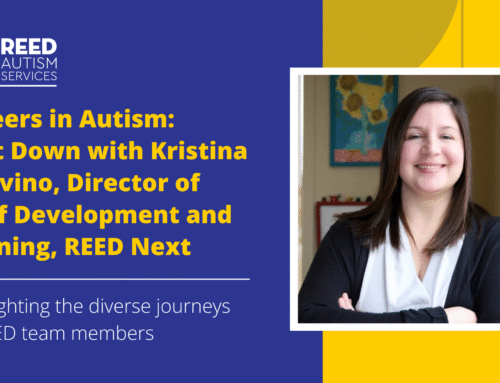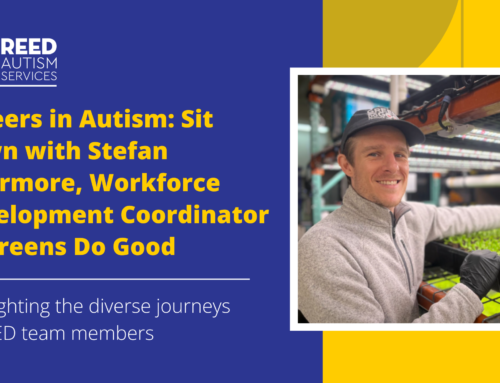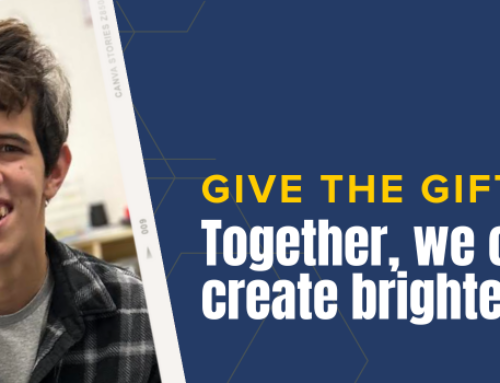Executive Chef Tony Villanueva has always connected food with love. He grew up on the lower east side of Manhattan, raised by a single mom who worked many jobs to make ends meet—but always made time for the family meal. As a child he would stand on a crate to reach the stove and soon his relatives were asking him to prepare meals. And on a trip to visit his mom at her cafeteria job, young Villanueva was enthralled by the energy in the kitchen and all the people working to prepare food.
Villanueva trained formally as a chef, and eventually joined Edgewood Country Club in River Vale, New Jersey, as Executive Chef Villanueva was tasked with changing the culture of the country club by creating a new and inspiring dining service. He was up to the challenge: He revolutionized the business of country club dining by prioritizing the freshest ingredients and sourcing them locally whenever possible.
It’s no wonder, then, that Villanueva jumped at the chance to become involved with Greens Do Good, a year-round hydroponic vertical farm in Hackensack, New Jersey, that offers locally-grown, sustainable produce to country clubs, restaurants and markets, and puts profits back into REED Next, a non-profit organization providing critical programming and job opportunities for adults with autism.
Rooted in Social Responsibility
Autism affects more than 1 in 59 Americans and 1 in 34 in New Jersey, the highest rate in the country. Approximately 50,000 individuals with autism spectrum disorder (ASD) turn 18 each year in the United States—and at age 21, public resources for these individuals virtually disappear. They’re no longer eligible for state-funded education, and adult programs and services are few and far between. Without daily support, these young men and women can lose their acquired skills—from daily care habits like making their own lunch and getting dressed by themselves to crucial life skills like language.
That’s where REED Next comes in. With an emphasis on community integration, continued learning, job training, and employment opportunities, the program is designed to support adults with autism ages 21 and older so that they can achieve greater independence and live a meaningful and fulfilling life. Greens Do Good was partially funded by a grant from the Special Child Health and Autism Registry and New Jersey Department of Health.
“With Greens Do Good, we are not only cultivating fresh produce, but we have created a sustainable social enterprise that ensures REED Next has the continued funding needed to support our programming for adults with autism,” explains Lisa Goldstein, vice president of development. “Unemployment rates for individuals with autism are woefully high. Greens Do Good gives these individuals a chance to find meaningful work.”
Walk into the farm on any given day and you’ll see REED Next clients hard at work. Everyone gets exposure to the different tasks around the farm that include planting, seeding, watering, and assistance with harvesting. “That daily structure and personal fulfillment of a job well done is just as important for individuals with autism as it is for any other adult,” says Farm Manager Jessalin Jaume, who also has a background in educating individuals with autism.
Greens You Can Feel Good About
Hydroponic vertical farming is an innovative method of growing plants in a controlled, indoor environment. Energy-efficient watering and lighting systems are used to nurture the crops, which are planted in stacked trays. This greatly improves yield per square foot and eliminates the need for soil, often a cause of bacteria contamination and disease. Not having soil also means not having to worry about weeds growing—eliminating the need for herbicides. If pests are encountered, they are controlled naturally with a release of ladybugs or praying mantises.
When a growing medium is required, Greens Do Good uses rock wool (spun volcanic rock) and grow stone (recycled glass) in lieu of soil for our larger crops. Microgreens are grown in a small bed of coco coir, the outer layer or husk of a coconut, a sustainable resource. The closed-loop hydroponics system also reduces costs as the same water is continuously recycled throughout the crop’s life cycle.
Greens Do Good is currently growing basil, baby kale, baby arugula, butterhead lettuce, and over 20 varieties of microgreens including chef-favorites wasabi, cilantro, and a custom spicy mix. All produce is handpicked and packed at the farm in Hackensack, minimizing transportation, and maximizing freshness, flavor, and nutrition. Greens Do Good uses zero pesticides, zero herbicides, and is 100% vegan.
Villanueva began getting weekly deliveries soon after the farm opened its doors in early 2019—making him the first Chef Partner of Greens Do Good. Since then, Greenbrook Country Club in North Caldwell and Knickerbocker Country Club in Tenafly have joined Villanueva in supporting Greens Do Good. As he explains. “I believe in the mission of Greens Do Good and want to create a ripple effect that becomes a tidal wave.”
by Jen Faust and Lisa Goldstein
To learn more about buying from Greens Do Good, contact Lisa Goldstein, vice president of development, at lgoldstein@reedfoundationforautism.org


